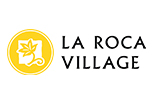For many years, L’Escala lived almost exclusively off catches of oily fish. They had established two working periods, the “early dawn” and the “prime dawn”. Families, always uncertain of what would greet them, waited on the beach to help unload and scrub the day’s catch and begin the process of salting the fish. This is a method of preservation with ancient roots; the nearby ruins of Empúries bear witness to it being practised in Roman times. To discover the special features of this trade, which shaped L’Escala’s culture for decades, we can visit the Alfolí de la Sal, the building where they stored the prized raw materials for producing the salted fish, and the Anchovy and Salt Museum, where we can take a tour of the different jobs involved in the process. We can also visit the shops and taverns of one of the four factories that keep the tradition alive. In addition, during the L’Escala Salt Festival, held each year in September, the town is completely transformed. Part of the population dresses up in traditional clothing and the beach is once again a workplace rather than a place of leisure. On this day of historical recreation we can see a sample of the trades involved in fish salting, the arrival of the boats on the beach, the construction of vessels led by the master boat builder, life in the taverns, traditional songs, the weaving of nets and the work of boatmen and the basket makers, among other activities. All of this is accompanied by performances of folklore, each year they invite a country or region of the world with links to salt, and the singing of traditional Habanera songs. They will also tell us why L’Escala residents are known as esquenapelats.

















